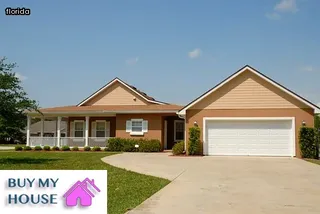The Florida foreclosure process is an incredibly complex one, and it is important to understand the laws that govern it. Foreclosure in Florida is a judicial process, meaning that the lender must file a lawsuit in court against the borrower before they can begin proceedings.
In addition, there are strict timelines outlined in the state's statutes which lenders must follow when initiating a foreclosure action. Furthermore, borrowers have certain rights during the foreclosure process such as the right to receive notice of the lawsuit and participate in court proceedings.
The court may also require mediation or other alternatives to foreclosure so that borrowers can avoid losing their home. Additionally, homeowners may be able to use a loan modification program or short sale to save their home from foreclosure.
It is essential for potential home buyers to be aware of these laws and timelines so they can make informed decisions about purchasing properties affected by foreclosure.

Navigating pre-foreclosure and foreclosure in Florida can be a daunting task for any property owner. Knowing what to expect from the process and timeline of foreclosure proceedings is essential for individuals who are facing foreclosure.
In Florida, the time frame for completing a foreclosure can vary depending on the circumstances of the case. Generally speaking, once the homeowner has been served with a notice of default and intent to foreclose, they have 30 days to respond before the lender initiates a lawsuit.
The court filing typically begins about 45 days after that notice. The homeowner will then receive a summons which gives them 20 days to answer or file an objection with the court.
If no response is filed, a default judgment will be entered against them allowing the lender to move forward with foreclosure proceedings. Once judgment is entered, it usually takes another two months or so before the sale can take place.
Depending on state law, homeowners may have an additional period of redemption after their property is sold at auction but before it is officially transferred to new ownership. Understanding these timelines and procedures is key for anyone trying to make sense of what’s happening during pre-foreclosure and foreclosure in Florida.
The COVID-19 pandemic has had a tremendous impact on the Florida foreclosure process and timeline. The state initially responded to the crisis with a moratorium on foreclosures for all mortgages held by public entities, such as Fannie Mae and Freddie Mac.
Additionally, mortgage lenders were encouraged to provide forbearance relief plans to homeowners facing financial hardship due to lost income during the pandemic. Despite these efforts, there are still many Floridians who are struggling to make their mortgage payments on time.
As a result, some may face foreclosure proceedings in the future. It is important for those affected by this situation to understand how the pandemic has impacted the Florida foreclosure process and timeline so that they are better prepared if they find themselves in this situation.

When it comes to foreclosure proceedings in Florida, the statute of limitations plays a key role. This law sets a limit on the amount of time that a lender has to file a lawsuit against the borrower, which is typically five years.
In some cases, this can be extended if there are extenuating circumstances, such as an agreement between the parties or if the foreclosure is being initiated by a court order. Understanding this timeline and how it may affect you can help you plan for any potential legal action in advance.
It is important to note that even if your mortgage was not in default for more than five years, that does not necessarily mean that the lender cannot pursue legal action against you. Depending on various factors, including whether or not you have already worked out an agreement with your lender or if they have already obtained a court order for foreclosure, these factors could extend the statute of limitations beyond five years.
Therefore, it is important to understand all aspects of your situation before taking any further action.
Investigating the preforeclosure process and procedures in Florida is essential for homeowners who are facing the possibility of foreclosure. Knowing what to expect from the foreclosure process and timeline can help those affected understand their options and take necessary steps toward achieving a favorable outcome.
In general, preforeclosure in Florida follows a set of standard procedures. The first step is typically for the lender to issue a Notice of Default, which gives the homeowner 90 days to address any past due payments.
If no payment is made after this period, the lender will file a lis pendens with the court, officially beginning the foreclosure process. During this time, homeowners are encouraged to contact their lender to explore loan modification or other options that may prevent foreclosure.
Once all attempts have been exhausted and an agreement cannot be reached between parties, foreclosure proceedings will begin with an auction scheduled by the county clerk's office. Ultimately, it's important for those facing foreclosure in Florida to become familiar with local laws and regulations as well as resources available to them throughout this challenging process.

When it comes to filing and serving lawsuits in the Florida foreclosure process, there are several steps that must be followed. Before initiating a lawsuit, the plaintiff, who is typically a mortgage lender, must first properly identify and serve the defendant.
This includes providing the defendant with a copy of the summons and complaint which outlines the allegations against them. After this has been done, the defendant then has twenty days to respond to the complaint or file an answer.
If they do not respond within this time frame, then they may be subject to a default judgment by the court. It is important to note that certain documents must be filed with specific courts depending on where a property is located.
Furthermore, lenders should ensure that all deadlines are met in order to avoid any delays in their foreclosure case. Additionally, it is advisable for lenders to seek legal representation if they have any questions or need assistance navigating through Florida's complex foreclosure process and timeline.
When a homeowner goes into foreclosure, it can be an incredibly stressful and confusing process. One of the primary ways to respond to a complaint during foreclosure is to review all documents carefully.
This includes loan papers, notices from your lender, court papers, and any other documents related to the foreclosure proceedings. It is important to read each document thoroughly so that you understand the terms and conditions of your mortgage and what is being asked of you in order for the process to move forward.
If there are any misunderstandings or discrepancies outlined in these documents, it is important to speak up immediately as this could potentially have an impact on your outcome. Additionally, staying organized with all paperwork is essential during a foreclosure as changes can occur quickly and without notice.
Keeping track of every document and communication between you and your lender can help ensure that no details are overlooked during this difficult time.

The Discovery Phase of a Foreclosure process in Florida is an important part of the timeline. It is during this time that homeowners have the opportunity to uncover any inaccuracies or mistakes made by lenders and creditors.
After filing a foreclosure defense claim, homeowners are provided with access to documents such as loan contracts, notice of default, payment history, credit reports and more. Additionally, it is during this discovery period that homeowners can request for depositions from those involved in the foreclosure action.
This allows them to gain further insight into the proceedings and to potentially raise any defenses they may have against the foreclosure. Homeowners should be sure to take advantage of this process in order to ensure their rights are protected and to maximize their chances of avoiding foreclosure.
When facing a foreclosure in Florida, it is important for homeowners to know and understand their rights. Foreclosure is a complex process that can be intimidating, but knowing what to expect during the timeline will help ease some of the stress associated with this difficult situation.
In Florida, homeowners have the right to receive notification from their lender before any action is taken. Once the foreclosure process has begun, it is vital for homeowners to stay up-to-date on their rights as well as keep a close eye out for any paperwork they may need to sign or return.
Homeowners have the right to participate in mediation which can be used as an alternative option to prevent foreclosure. This mediation allows homeowners the opportunity to negotiate with their lender and come up with a more manageable plan that works for both parties.
Lastly, while many other states allow homeowners a redemption period after the sale of their home, this is not an option in Florida so they must make sure they understand all of their options before signing any documents. Understanding these rights during a foreclosure process will ensure that homeowners are prepared throughout this difficult time.

When evaluating potential strategies to stop a foreclosure in Florida, it is important to understand the state’s foreclosure process and timeline. Generally, the Florida foreclosure process begins when the lender notifies the borrower of a default on a mortgage loan.
Once notified, borrowers have between 20-45 days to take action and respond with a solution. In some cases, borrowers may be able to negotiate a loan modification or repayment plan with the lender in order to avoid foreclosure.
This can include decreasing interest rates, extending the loan term or adding missed payments to the end of the loan term. Borrowers may also be able to refinance their loan or receive assistance through government programs like HARP or HAFA.
Other potential solutions include short sales and deed-in-lieu of foreclosure agreements. Ultimately, depending on individual circumstances, there are various options available which can help prevent a foreclosure in Florida.
Navigating the Florida foreclosure process can be overwhelming, especially if you are unfamiliar with the court requirements. It is important to understand the various steps and timelines associated with a foreclosure case in order to ensure that all paperwork is filed correctly and on time.
The Florida court system requires certain forms to be submitted at different stages of the process, such as a Complaint for Foreclosure, Lis Pendens, Final Judgment of Foreclosure, and Certificate of Disbursement. Additionally, each document must be properly served on all parties involved in the foreclosure case.
During this time frame, it may also be necessary to obtain an appraisal or inspection report from a certified appraiser or inspector before filing documents with the court. The timeline for when these documents must be submitted will vary depending on whether it is a judicial or non-judicial foreclosure process.
Understanding these requirements is key to ensuring that your case follows the correct procedures and that you are provided with ample opportunity to respond throughout the course of proceedings.

The foreclosure process and timeline in Florida have a significant impact on homeowners who are facing default judgments. Understanding the legal process is essential for anyone seeking to navigate the complexities of foreclosure in the state.
It is important to understand that while the foreclosure process varies from state to state, there are general steps that all homeowners should be aware of. In Florida, once a default judgment has been made, the lender will file a Notice of Default with the court, which serves as formal notification that the homeowner has failed to make their mortgage payments according to their loan agreement.
This notice includes specific details about how much money is owed and how long before it must be paid in full or else face foreclosure proceedings. After this Notice of Default has been filed with the court, homeowners will then typically receive a Notice of Sale from their lender detailing when and where the property auction will take place.
Additionally, depending on the type of loan taken out by the homeowner, there may be additional rights available such as being able to reinstate or modify their loan prior to sale or being eligible for a short sale. Each situation is unique so it's important for homeowners to fully understand their rights in order to best protect themselves during this difficult time.
When it comes to navigating the Florida foreclosure process, borrowers should be aware of their options for reinstatement. Reinstatement occurs when payments are brought up to date and the borrower resumes making timely payments on their mortgage loan – this is an option available to many homeowners during a Florida foreclosure.
If a homeowner elects to pursue reinstatement, they should contact their lender or loan servicer as soon as possible. The lender or servicer may work out a plan that allows the homeowner to pay back what is owed in installments over a set period of time.
There may also be additional fees associated with reinstatement depending on the individual's circumstances. Homeowners who are struggling financially may also want to look into loan modification options or other forms of assistance that could help them bring their payments up to date.
Understanding all of the possible solutions available can help reduce stress during this difficult time and ensure that homeowners are able to stay in their homes if possible.

When it comes to the Florida foreclosure process, homeowners should be aware of redemption periods after the sale. These are periods of time when homeowners have a chance to reclaim their mortgages and remain in their homes.
A redemption period may occur if a lender agrees to accept payments from a homeowner during a certain amount of time or if the mortgage is sold at an auction. Understanding these periods is important for anyone facing foreclosure in order to know what their rights and options are.
If a lender does not accept payment during the redemption period, then the property will become owned by whoever purchased it at auction. The length of the redemption period depends on whether the home was sold through judicial or nonjudicial foreclosure and can range from 30 days up to one year after the sale date.
Homeowners should check with their state's laws and regulations regarding foreclosure as they may differ from county-to-county or even city-to-city. Knowing exactly how long they have before they lose ownership of their home can help homeowners plan accordingly and potentially save them from losing their homes altogether.
In the state of Florida, the foreclosure process and timeline can vary depending on the specifics of each individual case. Generally, it takes between four to six months for a lender to complete the foreclosure process in Florida.
Before a foreclosure begins, homeowners must receive a notice of default from their lender and will be given an opportunity to bring their loan current by paying any past due payments plus fees and costs associated with delinquency. If these payments are not made within 30 days, then the lender may initiate a foreclosure lawsuit and begin the legal process.
Once initiated, the homeowner is typically given 20 days to respond in writing. If no response is received, then the court may enter a default judgment against the homeowner and order that the property be sold at public auction.
The auction usually takes place within 90 days after entry of judgment and can take as little as one week or up to several weeks depending on how much interest there is in bidding on the property. After all bids have been accepted, it will take another 30 days before ownership of the property is transferred to the winning bidder.
To summarize, it generally takes between four to six months for lenders to foreclose on a house in Florida from start to finish.

The process of foreclosure in Florida is relatively straightforward and follows a timeline that can be broken down into several stages. The first stage of the Florida foreclosure process is when the home loan lender files a lawsuit against the borrower.
During this stage, an official notice of default must be sent to the borrower, which informs them that they are behind on their mortgage payments and that foreclosure proceedings have been initiated. After this, a Notice of Sale will be published in a local newspaper for four consecutive weeks.
This notice informs potential buyers and creditors that the property is being sold through public auction. On the day of the sale, bids will be accepted until the highest bidder has been chosen.
If no bid is received, then the lender will take possession of the property. Afterward, it is up to them if they want to resell it or keep it as an investment.
Finally, if there are any remaining balances owed on the loan after all proceeds have been paid out, then these must also be settled before the process can be considered complete.
In Florida, after a foreclosure is completed, the homeowner typically has between 10 and 45 days to move out of the property. This timeframe can vary depending on several factors such as whether the lender forecloses through the courts or opts for a non-judicial foreclosure.
In judicial foreclosures, which are more common in Florida, homeowners receive a notice of sale before being served with an order of eviction. The amount of time between these two events is usually around 30 days.
It's important to be aware that this timeline can be shortened if a homeowner does not contest the foreclosure or fails to make payments according to an agreed plan. Additionally, if the home is sold for an amount less than what was owed on it, the borrower may still be responsible for repaying the difference, known as a deficiency judgment.
Knowing all these details can help you prepare for what to expect from the Florida foreclosure process and timeline.
Foreclosure is a legal process in Florida that can take months or even years to complete. It’s important for homeowners facing foreclosure to understand the timeline and laws around how long they can go without paying their mortgage before foreclosure proceedings begin.
In Florida, homeowners must be at least 90 days delinquent on their mortgage payments before the foreclosure process can start. However, it’s important to note that the lender may reach out to the borrower prior to this period with offers of alternatives such as loan modifications or repayment plans.
If these offers are not taken up by the borrower and/or payments continue to be missed, then after 90 days the lender will start initiating formal foreclosure procedures. Depending on the state and county in which you live, this process could take anywhere from 6-18 months, so it’s essential to understand what legal rights you have throughout this time.